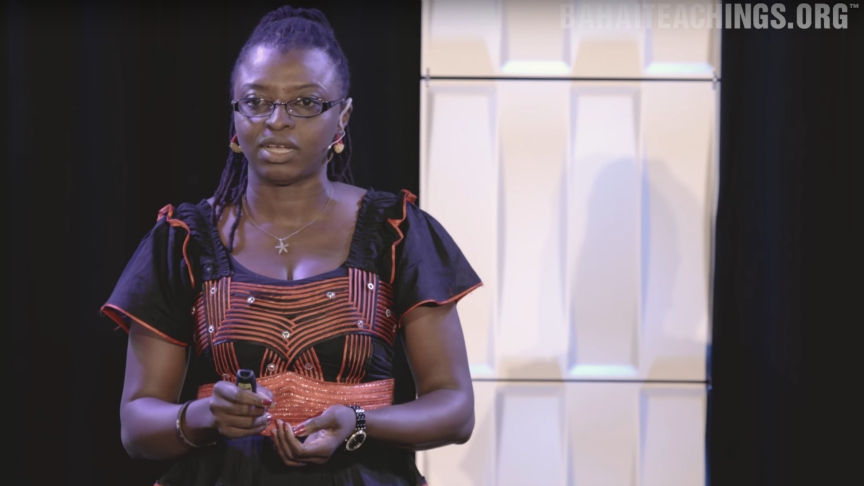The intersection of gender and education occupies a pivotal position within the framework of Bahá’í teachings. Central to these teachings is the unequivocal assertion that educating girls is not merely a moral imperative; it serves as a foundational pillar for the advancement of society as a whole. This profound belief springs from the understanding that the empowerment of women and the cultivation of their intellectual and moral capacities produce a ripple effect that can catalyze social transformation. This article delves into the Bahá’í perspective on girls’ education and explores the intricate relationships between gender equality, education, and global progress.
Historically, the Bahá’í Faith asserts that education is a fundamental right, akin to the right to life itself. This perspective transcends cultural and geographical boundaries, urging communities worldwide to embrace the concept that each individual, regardless of gender, deserves access to quality education. The teachings, articulated by Bahá’u’lláh, the founder of the Bahá’í Faith, underscore that ignorance is a profound barrier to human progress. Thus, the implications of educating girls extend far beyond their immediate circumstances; they penetrate the very fabric of society, fostering a culture conducive to harmony and cooperation.
Navigating the socio-cultural landscape reveals an alarming reality: girls in many regions continue to face insurmountable barriers to education. Factors such as poverty, entrenched gender biases, and socio-economic instability tend to conspire to hinder girls’ educational opportunities. Bahá’í teachings provide not only a critique of these barriers but also illuminate a path forward. The ennobling principle that men and women are equal must manifest in tangible forms, such as equal access to educational resources. Education is thus envisaged as a tool of liberation; it empowers girls to transcend the confines of their circumstance and assume active roles as contributors to societal well-being.
Furthermore, when girls are educated, the benefits resonant broadly across demographic divides. Research substantiates the assertion that educated women are more likely to participate in the labor force, earn higher incomes, and invest in the education of their own children. This cyclical phenomenon enhances community health, economic stability, and overall quality of life—a testament to the transformative power housed within the educated female populace. The Bahá’í teachings align with this understanding, advocating for systemic changes that prioritize girls’ education as a core strategy for communal advancement.
The notion of education as a holistic endeavor is equally significant. Bahá’í principles emphasize that education should not merely be the transmission of information; it must aim to foster qualities of character, critical thinking, and a sense of responsibility towards fellow human beings. In this light, girls are not only beneficiaries of educational access but also agents of change. When young women are equipped with both knowledge and moral virtues, they embody the potential to influence future generations, thus establishing a legacy of learning and leadership.
Consider also the role of community in the education of girls. The Bahá’í teachings advocate for collective responsibility, positing that entire communities flourish when girls are educated. This collaborative approach can fortify educational initiatives, creating environments where the importance of girls’ education is recognized and celebrated. Parents, educators, and community leaders can embody a shared commitment to removing barriers to girls’ education, fostering an ethos that elevates the discourse around gender and learning. In this synergy, communities not only become advocates but also active participants in the reformation of educational paradigms.
The global discourse surrounding education increasingly acknowledges the intersectionality of educational access with issues such as health, poverty alleviation, and conflict resolution. Within the Bahá’í worldview, the interconnectedness of these issues is paramount. Advancing girls’ education is intimately linked to tackling broader societal challenges. For instance, educated women are equipped to make informed health choices, contributing to the well-being of their families and communities. Moreover, education serves as a buffer against the advance of conflict, as societies that prioritize education are statistically less prone to violence. The commitment to uplifting and educating girls thus transcends individual interests, becoming a collective necessity for a harmonious global community.
In conclusion, Bahá’í teachings articulate a powerful vision for girls’ education as a cornerstone of social improvement. The conviction that educating girls is not merely beneficial but essential is rooted deeply in understanding the multifaceted benefits that education brings—not only to women but to society at large. With a focus on gender equality, holistic education, and community involvement, the call to educate girls becomes an imperative that resonates across cultures and time, illuminating a path towards a more equitable, prosperous, and just world. This vision rests on the belief that an educated girl today can forge a brighter tomorrow, not just for herself, but for an entire world striving for progress and unity.
